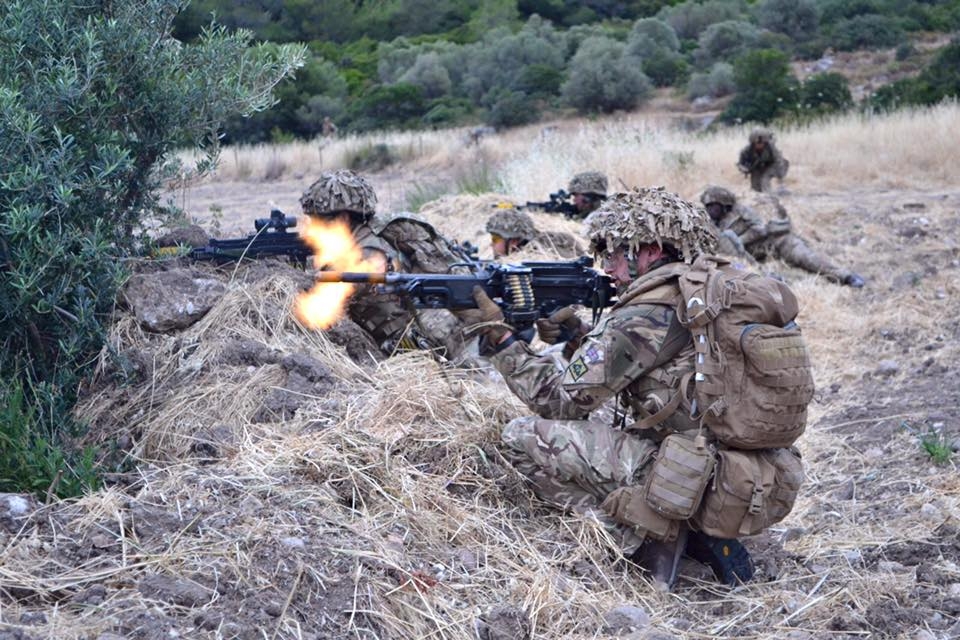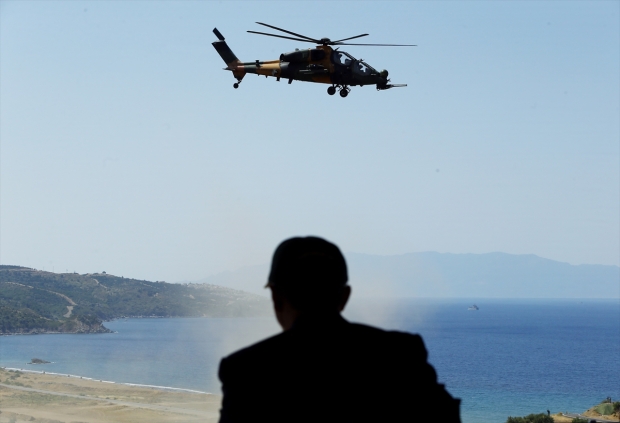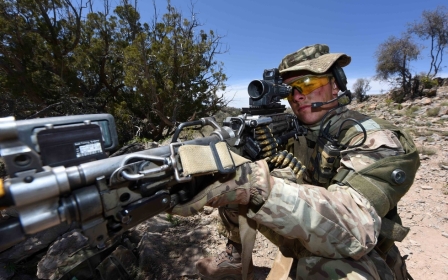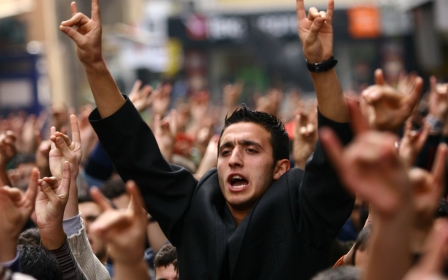British Army slammed for training with Turkish, Saudi troops

The British Army is taking part in a joint exercise with military forces from Turkey, Saudi Arabia and Qatar, to the fury of campaigners who say David Cameron's government is prioritising military relationships over human rights.
About 120 soldiers from the Royal Welsh infantry regiment are joining US and European forces taking part in Exercise Efes 2016 in western Turkey.
Turkey has been repeatedly accused of human rights abuses during its long-running conflict with the Kurdish Workers Party (PKK), and more recently President Recep Tayyip Erdogan has overseen a clampdown on his rival politicians and the media as he consolidates his grip on power.
Earlier this month, Human Rights Watch raised concerns that Turkish border guards were shooting Syrian refugees trying to enter, while it also reported an increase in allegations of torture against Turkish forces after the breakdown of the Kurdish peace process.
British opposition MPs have been quick to condemn the timing of the exercise. Tim Brake, the Liberal Democrat foreign affairs spokesman, told Middle East Eye: “It is deeply concerning that the UK has chosen to take part in joint exercises in Turkey at a time when Turkey is clamping down on freedoms and human rights and scaling up its military attacks in Kurdish areas."
He added: “Despite the UK government’s attempts to breeze over these uncomfortable truths, Erdogan’s government is not one with which the UK shares many values.”
Brake's comments come after MEPs in Brussels warned that “the right to liberty and security, to a fair trial and freedom of expression” are under threat in Turkey, after a number of court cases were filed against activists accused of insulting the increasingly hardline president, who himself observed Exercise Efes 2016 earlier this week.
A UK MoD spokesperson, however, stressed that as a NATO ally, London and Ankara are destined to have close military ties.
“Turkey is a key NATO ally. The UK regularly trains with them and other NATO states – this includes participating in exercises," the spokesperson told MEE.
Brake said that while it was “important” for the UK military to train and share military expertise with allies, it should not take place when “it undermines our firm commitment to human rights and international humanitarian law”.
The multinational drills, the largest in Turkish history, reportedly include “complex” infantry attacks, airborne assault and naval landings, prompting concerns that British forces will train with Saudi Arabian and Qatari forces linked to alleged human rights abuses in Yemen, where both countries have deployed troops in a controversial intervention. Saudi forces were used to violently put down pro-democracy forces in Bahrain in 2011.
Andrew Smith, of Campaign Against Arms Trade, told MEE: "This is yet another example of a UK foreign policy that fails to take regional tensions into account and all-too-often prioritises arms sales and military relations over human rights."
The Ministry of Defence in London is attempting to bolster its presence in the Middle East to counter the Islamic State (IS) group. This has included the expansion of naval facilities in Bahrain, increased training in Oman, training of Bahraini snipers by Royal Navy commandos and the deployment last year of British military trainers to Jordan and Turkey.
As many as 860 international troops are taking part in the military manoeuvres, which are a show of strength from Ankara at a time of heightened tensions between Turkey and Russia, after Turkey shot down a Russian jet last year, with the two countrys disagreeing over whether the plane was in Turkish or Syrian airspace.
Moscow has also accused Turkey of hindering Kurdish forces in their fight against IS, while Washington-Ankara relations have been strained over the Syrian conflict amid allegations that Turkey allowed anti-government Sunni militants to bring in supplies from its side of the border in an attempt to undermine Kurdish fighters in Syria.
Despite these tensions, the month-long exercise, which started earlier this month in Western Anatolia, also includes forces from the US, Japan, Germany, Azerbaijan, Poland, Pakistan and Ukraine.
Human rights campaigners have expressed concern that Ankara has used the exercise to legitimise the widening of its counter-insurgency operations.
Earlier this week, Turkey’s top military chief used the drills to commit to continuing “counter-terrorism” operations across the country “until terrorism is eliminated completely and safety is ensured for all citizens, regardless of ethnicities and sects."
Human rights campaigners told MEE that Turkish military operations against the PKK “greatly exceed counter-terrorism operations”.
Middle East Eye propose une couverture et une analyse indépendantes et incomparables du Moyen-Orient, de l’Afrique du Nord et d’autres régions du monde. Pour en savoir plus sur la reprise de ce contenu et les frais qui s’appliquent, veuillez remplir ce formulaire [en anglais]. Pour en savoir plus sur MEE, cliquez ici [en anglais].





